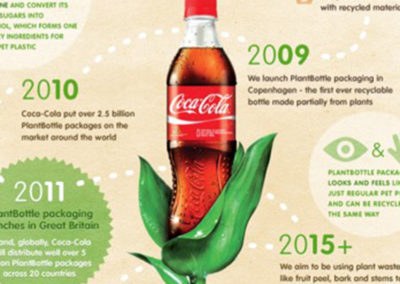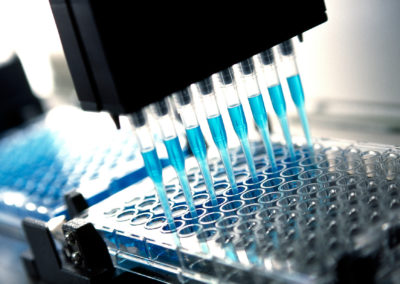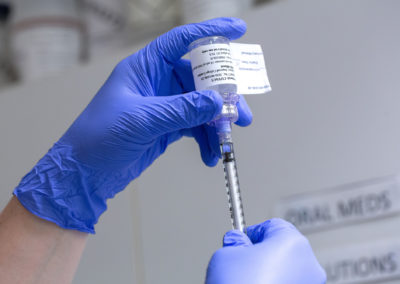Healthcare has been greatly affected by the COVID-19 pandemic. However, as we emerge from global lockdowns, healthcare systems are trying hard to catch up to provide treatment to those in need who have missed out, as well as building healthier societies to reduce the impact of future pandemics and other chronic or underlying health problems.
As the first volunteer receives Imperial’s COVID-19 vaccine (thanks to over £41 million government funding and another £5 million in philanthropic donations) – Imperial’s academics are working on solutions to take us past the pandemic into life after lockdown.
Other Imperial Tech developments include…
- Wireless IoT sensors are increasingly used for biometric measures (e.g. via smart watches, smart clothing, brain-computer interfaces), audio and image recording or collecting environmental data such as temperature and pressure. Neural Network Wireless IoT Devices could save 3x as much energy as standard implementations and allow more efficient on-chip machine-learning classification of data.
- Cardiovascular disease (CVD) is the number one cause of death globally. The Smartphone Ballistocardiogram App makes your smartphone into a portable BCG that’s easy to use and provides ECG-quality data without a trip to the GP or hospital.
- DnaNudge uses your own DNA to nudge you towards healthier choices each time you shop. These every day small swaps can lead to big positive changes to your health over the long term.
Areas of current research and modelling
Imperial has been a world-leader in public health, epidemiology and policy design across a number of diseases, such as obesity, diabetes, tuberculosis (TB), HIV/AIDS and malaria. Here is a short summary of some of the latest projects providing life-saving information to organisations working to tackle these illnesses:
JAMVENT ventilator
Experts in medical device design (bioengineering) and a clinician treating infected COVID-19 patients designed a low-cost ventilator for long term use that can be built, quickly, to meet MHRA and FDA requirements using just generic parts.
Fighting misinformation
In the midst of the pandemic, misinformation and misrepresentation is more prevalent than ever, from 5G infrastructure being linked to the spread of the virus, the benefits of use of face masks by the public – to how far the airborne virus can be transmitted, potential ‘treatments’ and more
The toll on mental and physical health
We know the resulting economic downturn will have significant consequences on people’s physical and mental health, both in the short and long term – and a debate has started over whether the adverse health effects of a recession may in fact be greater than the increased morbidity and mortality within the pandemic itself.
Imperial’s COVID-19 response
Experts across a wide range of disciplines have been and are continuing to to keep government and society informed about COVID-19, save lives through vaccines and testing – and protect precious workforces like the NHS.
Citizen science project
What impact has the lockdown had on our mental health, and what determines how people cope with isolation? These are a few of the questions Imperial researchers hope to answer as part of a new crowd-sourced science project, The Great British Wellbeing Survey.
Study of Vo
“Our research shows that testing of all citizens, whether or not they have symptoms, provides a way to manage the spread of disease and prevent outbreaks getting out of hand.” Professor Andrea Crisanti
Urine reveals diet quality
Scientists have completed large-scale tests on a new type of five-minute urine test that measures the health of a person’s diet. The test also produces an individual’s unique urine ‘fingerprint’.
.
Smartphone-enabled test
Advanced nanoparticle technologies developed for ultrasensitive viral detection of HIV is being adapted by Prof Molly Stevens and colleagues to deliver rapid point-of-care results and connect these to healthcare databases in real time.
Body mods
From mind reading machines to edible water bottles, self-learning bionic hands to smart tattoos, the feature article highlights a range of inventions created by staff, students and citizen scientists which aim to make our lives a little more exciting and a little easier.
Keeping hydrated with sweets
Jelly Drops – a sugar free vegan sweet, made from 95% water – are a terrific solution to ensure people with dementia can stay hydrated without needing constant care or reminders.
.
Monitoring ICU vital signs with AI
Third Eye Intelligence has won a host of awards for its innovative application of artificial intelligence in monitoring the vital signs of patients within intensive care units, meaning doctors can focus on diagnoses and treatments.
Memory hacks for those who need help
Use ancient techniques and modern technology to empower those with dementia or other memory impairments to improve their ability to remember information with Hippocampus’s updated Memory Palace.
Who to contact:

Jamie Pombeiro de Sousa
Engagement Manager
For Materials, Manufacturing, Mechanical Engineering, Computing, Cyber Security, Data Science and AI






